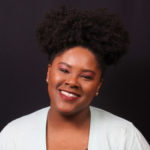
Code-switching as a School Strategy – Podcast Episode 192 | Classnotes Podcast 192
Podcast: Play in new window | Download
Classnotes Podcast (July 1, 2019). In linguistics and language classes, the term “code-switching” describes how speakers mix two or more languages and speech patterns in writing and conversation. But the term has become broader to encompass dialogue that spans cultures, such as how we change the way we express ourselves depending on who’s in the room. In our increasingly diverse schools, many students still do not see themselves reflected in the curriculum or the classroom discussion.
In this episode, special guest, Dr. Martina McGhee talks with Michelle Vega and Hector Bojorquez about how schools can build inclusive curriculum that is more honest and whole and how to use code switching to help students feel encouraged and supported. Dr. McGhee is a doctoral fellow in the University of Texas at San Antonio (UTSA) who is leading a new course on race and identity through pop culture. Michelle Martínez Vega is IDRA’s technology coordinator, and Hector Bojorquez is IDRA’s director of operations.
Show length: 27:23 min
Resources
Students explore topics of race and identity during new UTSA course
Code Switch Goes To College, NPR
Code-Switching in the Classroom, Miami University
Is Code Switching Always a Crisis in the Classroom? How to Successfully Allow or Avoid It, FluentU
Your feedback
We welcome your comments and questions to the podcast. Send an e-mail to podcast@idra.org.
Listen to every episode!
To ensure you don’t miss a single episode of IDRA Classnotes, subscribe to the podcast in iTunes, (download iTunes free if you don’t have it) or sign up to receive an e-mail alert as soon as a new show is published.




